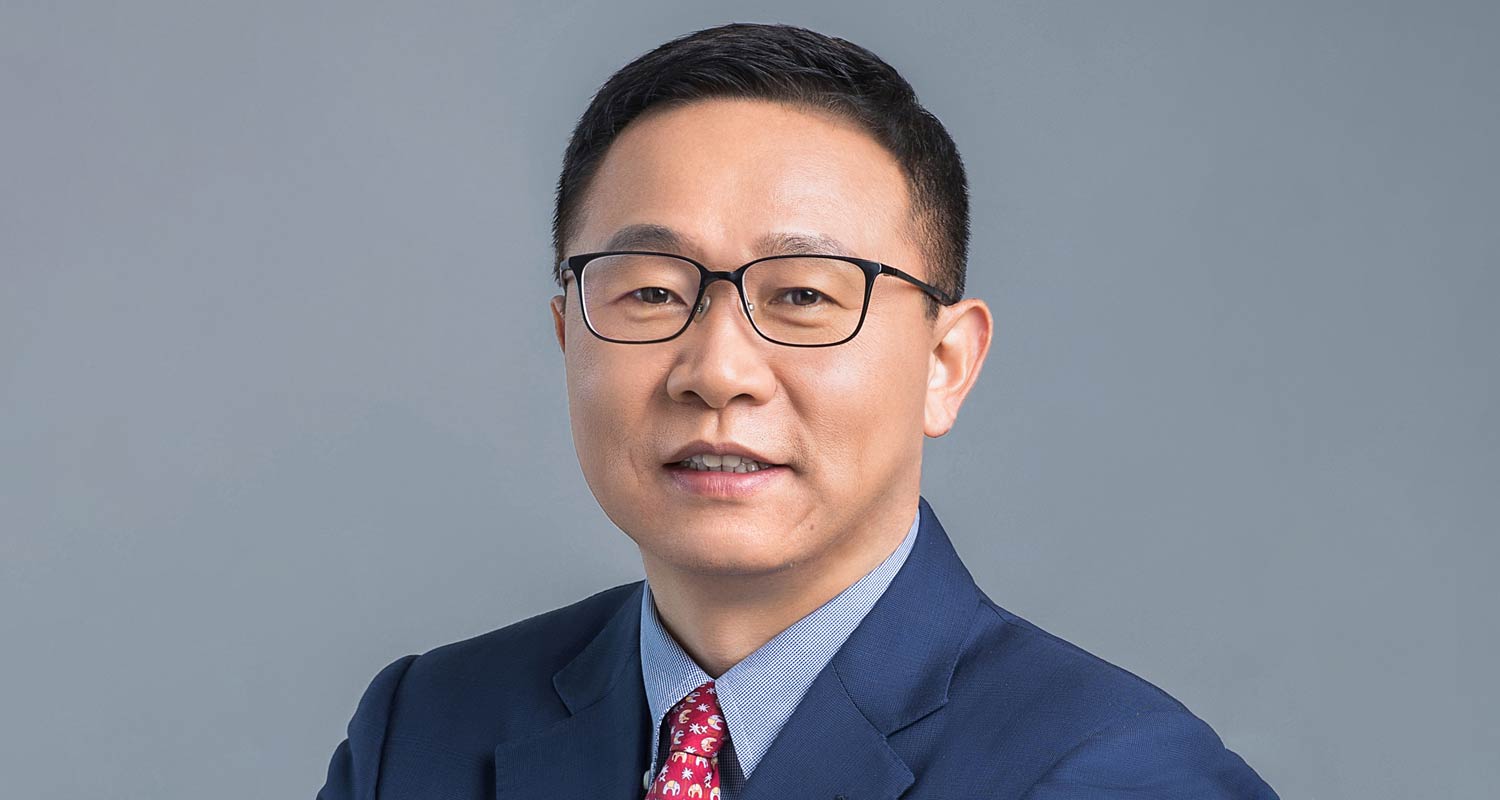
 David Wang, executive director of the board and chairman of the ICT infrastructure managing board for Huawei
David Wang, executive director of the board and chairman of the ICT infrastructure managing board for Huawei
Huawei Africa Connect 2024 sub-Saharan Africa was held recently at the Sandton Convention Centre, with attending Huawei senior leaders declaring a new era for the enterprise-focused annual event.
Previously called Huawei Eco Connect, this year’s edition reaffirmed the company’s commitment to sub-Saharan Africa and providing innovative solutions to partners in these markets.
Opening the event, David Wang, executive director of the board and chairman of the ICT Infrastructure managing board for Huawei, said it was exciting to see so many governments and businesses in the region racing to go digital and that many pioneers were already deploying intelligent applications. “We have invested US$156-billion in R&D over the last decade. This ongoing investment has helped us lead the industry.
“Focusing on networks, storage, computing and cloud, we work with partners to tailor ICT infrastructure products and solutions to customers’ business scenarios,” he added.
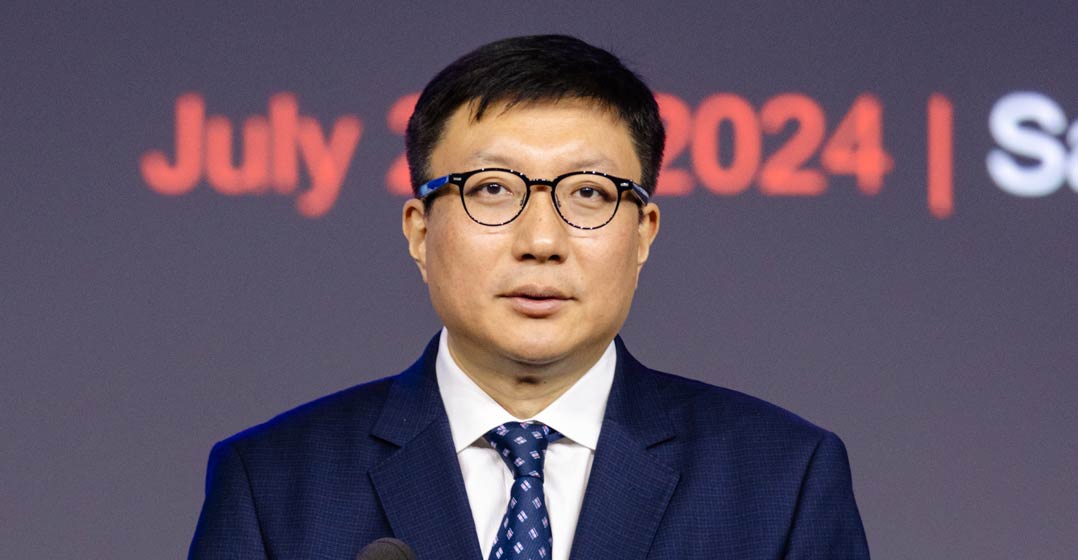 Hover Gao, president of Huawei sub-Saharan Africa
Hover Gao, president of Huawei sub-Saharan Africa
Hover Gao, president of Huawei sub-Saharan Africa, lauded Africa’s young population, its blooming cities, and bold innovations across industries from fintech to clean energy. He added that the region is now faced with “an unprecedented opportunity to reshape its future”.
Africa Connect 2024 focused on how the intelligent digital era in Africa is impacting sectors like finance, transportation, manufacturing, internet service provision, and small to medium enterprises (SMEs). Huawei experts took to the stage to expand on the role their products and services will play in the intelligent era.
“Huawei will play four key roles by leveraging our strengths in leading ICT technologies,” Gao said. These include being the constructor of digital and intelligent infrastructure, the innovator in the digital intelligent transformation of African industries, the enabler of the industry’s low-carbon development and a contributor to Africa’s prosperous innovative ecosystem.
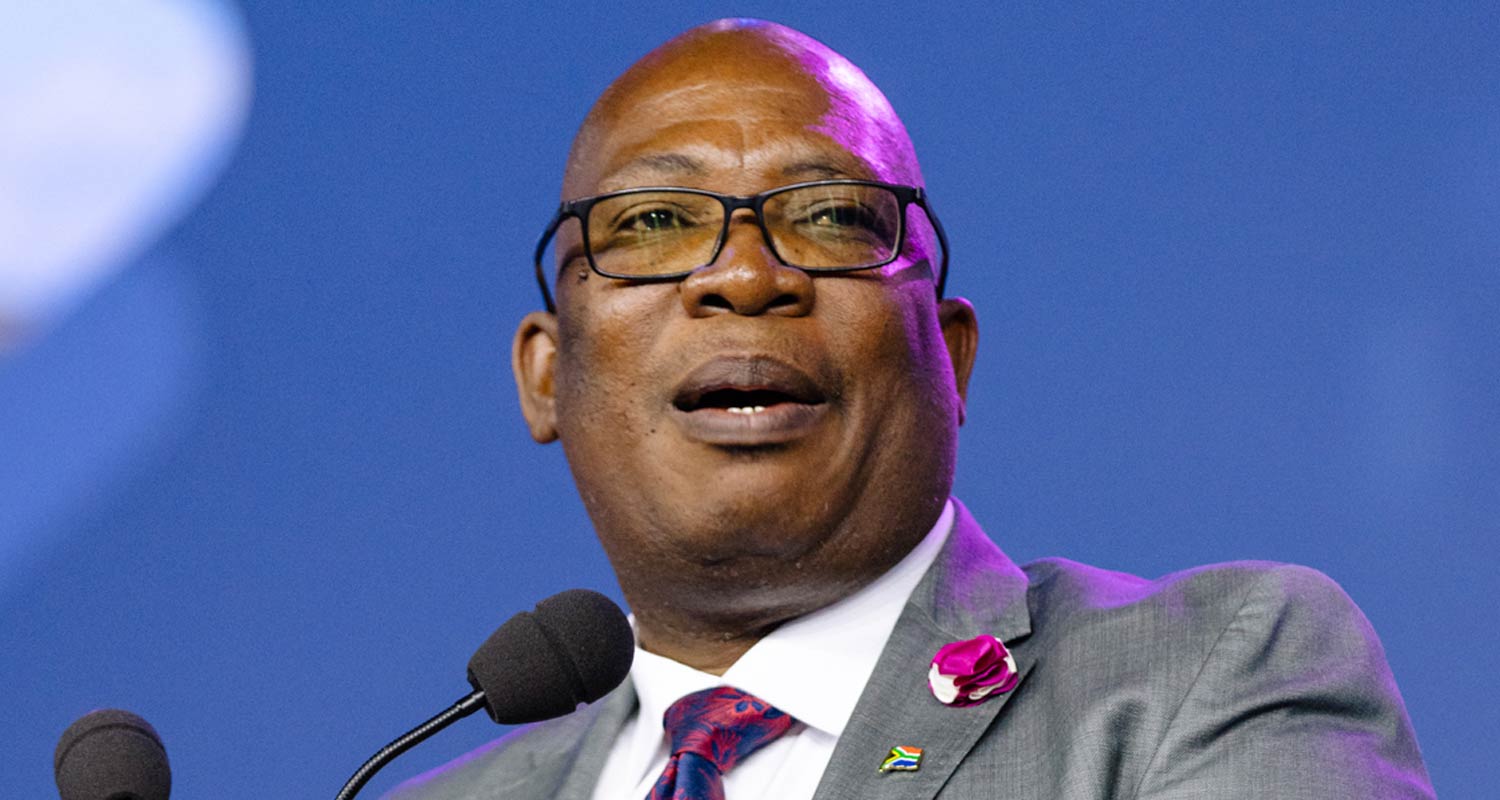 Panyaza Lesufi, premier of Gauteng
Panyaza Lesufi, premier of Gauteng
Gauteng premier Panyaza Lesufi returned to the annual event this year. He thanked Huawei for continuing to host its annual event in the province.
“We are proud as Gauteng to be the host province and to provide all the necessary support needed to ensure that we continue to succeed in our relationship and build a lasting partnership,” he said.
Lesufi said he is the leader of a government that wants to embrace innovation. He stressed that he would like to see more solutions that can help combat crime in economic hubs like Johannesburg.
More than 2 500 business and thought leaders met at the Sandton Convention Centre to exchange ideas with technology experts, learn about the latest products that are defining the intelligent digital era and explore business opportunities.
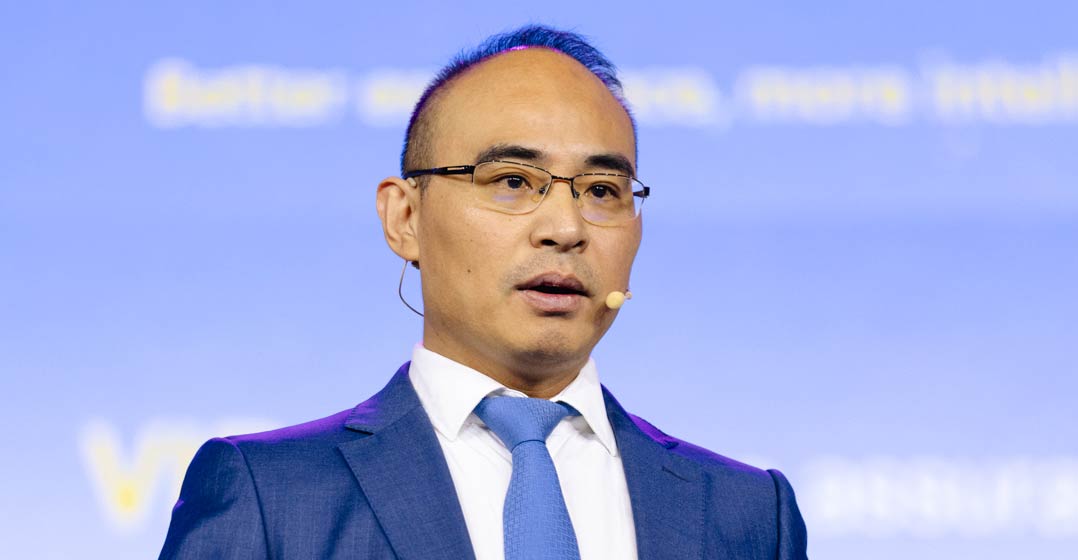 Victor Guo, president of Huawei sub-Saharan Africa Enterprise Business Group
Victor Guo, president of Huawei sub-Saharan Africa Enterprise Business Group
Victor Guo, president of Huawei sub-Saharan Africa Enterprise Business Group, expanded on the impact that Huawei has had on the continent across government, financial, transportation and power generation sectors.
Guo spoke about the importance of emerging economies like South Africa and Nigeria and said: “There are a lot of young people, they are open and eager to learn new technology. We trust sub-Saharan Africa is going to have a unique role towards intelligence.”
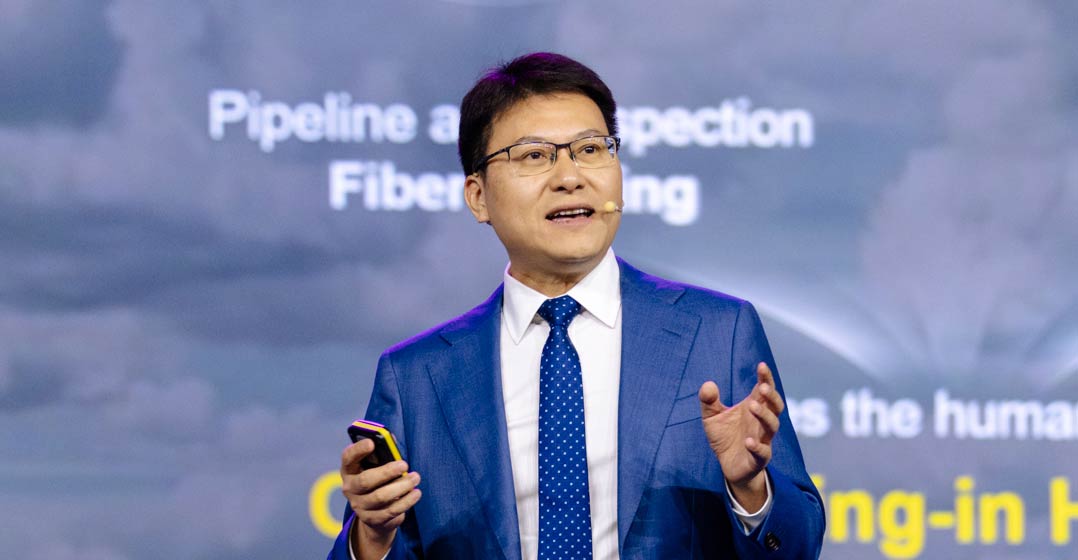 Bob Chen, president of optical business product line, Huawei
Bob Chen, president of optical business product line, Huawei
The keynote session continued with Bob Chen, president of the optical business product line at Huawei, who discussed how Huawei’s optical business is driving three trends in industrial intelligence.
The first trend applies to network providers, where fibre-optic wires are in and copper is out. The intelligent era requires Wi-Fi 7 but existing copper cables cannot support it. He discussed how Huawei solutions are phasing in fibre cables which have longer lifespans and can provide 100Tbit/s of bandwidth. The second trend is that fgOTN is in and SDH is out. Where SDH bandwidth has been used for 30 years, in the intelligent era it becomes a bottleneck.
A new-generation standard released by International Telecommunication Union’s Telecommunication Standardisation Sector (ITU-T) in 2023, fgOTN will provide a constant bit rate and meet international standards. Lastly, he discussed the growing influence of optical sensing to replace manual inspections that are currently used in oil and gas pipeline industries. Huawei is developing technologies that rely on optical sensing instead.
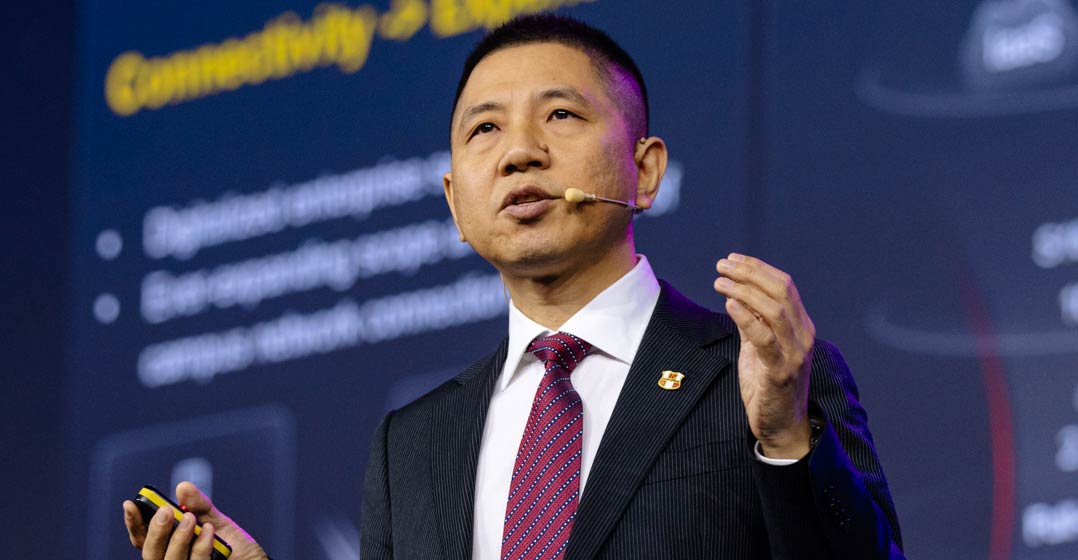 Leon Wang, president of the data communication product line, Huawei
Leon Wang, president of the data communication product line, Huawei
Leon Wang, president of the data communication product line at Huawei, introduced the Xinghe Intelligent Network. These intelligent network products are geared towards carrier networks and are intended to enable wide-area networks, data centre networks and network security. There are four sub-solutions within this offering, namely Xinghe Intelligent Campus, Xinghe Intelligent Fabric, Xinghe Intelligent WAN and Xinghe Intelligent Network Security.
These services will leverage the latest technology including artificial intelligence and network-scale load-balance algorithms to create smart networks that deliver industry leading connection speeds and security.
Wang said: “We will always provide the newest solutions and products to help our customers accelerate to a connected world.”
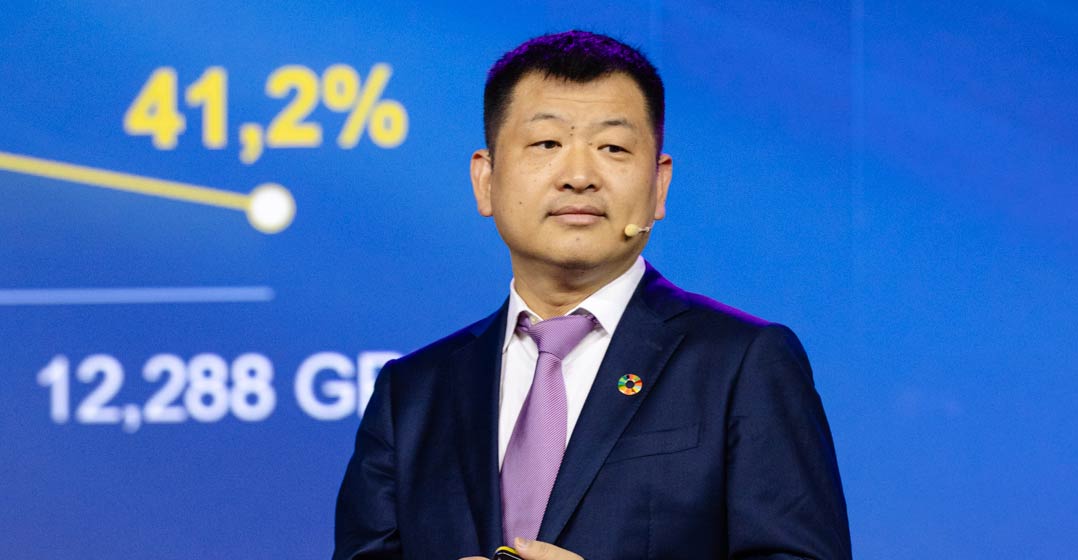 Peter Zhou, president of the data storage product line, Huawei
Peter Zhou, president of the data storage product line, Huawei
“The energy use and efficiency of data centres becomes more essential as we begin to talk about AI on a large scale,” said president of the data storage product line at Huawei, Peter Zhou.
He discussed the new paradigms that will define AI-ready data centres moving beyond the traditional focus on performance, data and reliability.
Zhou took the opportunity to announce new software capabilities as well as high-capacity solid-state hardware that will allow Huawei data centres to power large-scale AI solutions for African enterprises.
“Huawei is redefining data storage and innovating in six dimensions: ultra performance, data resilience, new data paradigm, data fabric, high scalability and sustainability,” said Zhou.
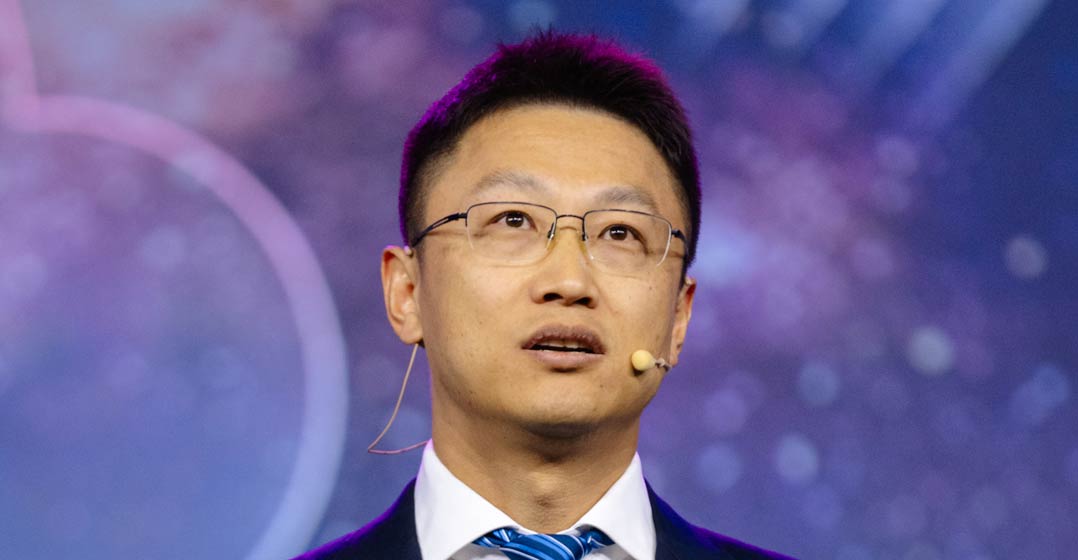 Hu Yuhai, vice president of Huawei Cloud Stack
Hu Yuhai, vice president of Huawei Cloud Stack
Hu Yuhai, vice president of Huawei Cloud Stack, addressed delegates about the advances Huawei is making in its cloud offering. He introduced Huawei cloud stack 8.3 at the conference, which seeks to boost the reliability of the service, its end-to-end security offering, flexible management and an open ecosystem that can easily integrate with private cloud and third-party providers.
“All of our cloud services are natively deployed so we can provide the customer with a consistent experience,” said Yuhai.
Yuhai’s presentation expanded on how the cloud capabilities developed by Huawei also support its Pangu Models. These industry-specific large models are helping partners and developers operationalise AI and drive value across industries from mining, railways, finance and government.
Enabling success on the continent through strategic partnerships
Partners grow with Huawei. As part of Huawei Africa Connect’ s growing focus on sub-Saharan Africa, Huawei’s customers and distribution partners from across the region were invited to speak about how working with Huawei has impacted their business.
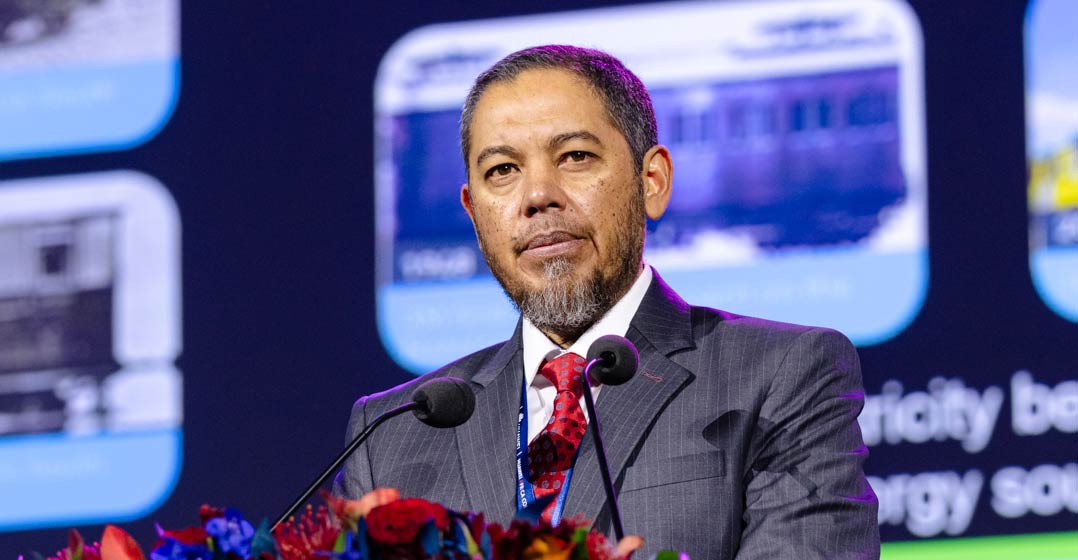 Hishaam Emeran, CEO, Prasa
Hishaam Emeran, CEO, Prasa
The CEO of the Passenger Railway Agency of South Africa (Prasa), Hishaam Emeran, said that the company is in the process of rolling out a bold modernisation plan over the next decade to the tune of R100-billion. This process is meant to improve the railway agency’s signalling, communications and crime prevention systems.
“Digitisation plays a critical role in each of our operational pillars,” he said.
He added that Huawei’s smart railway perimeter detection solutions have been used to improve security at six of their depots.
“When you look at the last 12 months not only because of this solution but because of our security strength, we have reduced theft and vandalism by over 75%,” said Emeran.
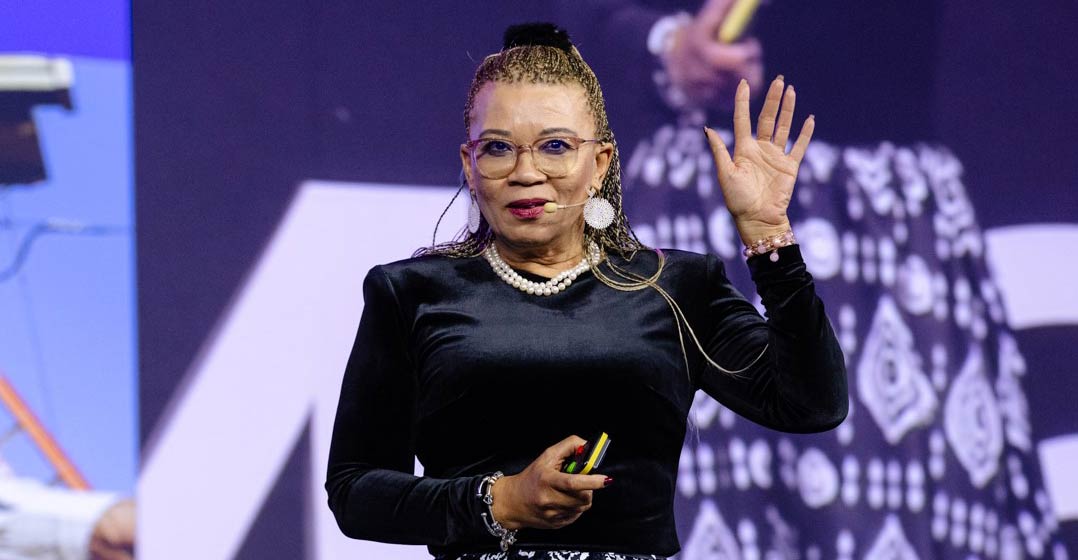 Faith Burn, CIO, Eskom
Faith Burn, CIO, Eskom
Eskom CIO Faith Burn said: “We have successful partnerships with Huawei around getting our infrastructure in place so that we are ready for the digitalisation journey we need to go on.”
The partnership mainly supported Eskom with storage capabilities, but the utility also has the goal of becoming a data-led organisation that has the latest cybersecurity capabilities.
Modernisation and support
Cheryl-Jane Kujenga from BCX, a Huawei partner organisation, shared that it aims to provide modernisation and support with sector specific solutions in a range of industries from financial to banking and education sectors.
“As a systems integrator, we will need to keep learning to enhance our capabilities and crucially to collaborate with a leading technology company such as Huawei so that we can broaden our service offering to meet our changing customer needs,” said Kujenga.
The first day of keynote speeches at the fifth annual Huawei Africa Connect event, ended with delegates networking and sharing knowledge that will drive intelligent solutions in their industries. As Guo said at the end of his address: “We promise to keep investing in Africa.”
For more information, please visit Huawei online at www.huawei.com/za.

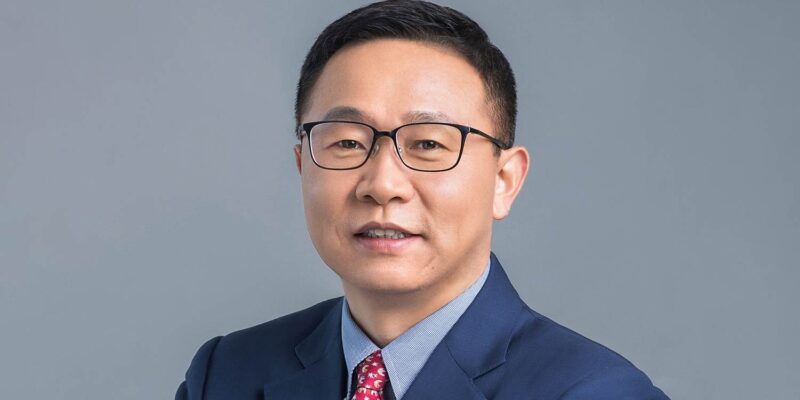









Comments